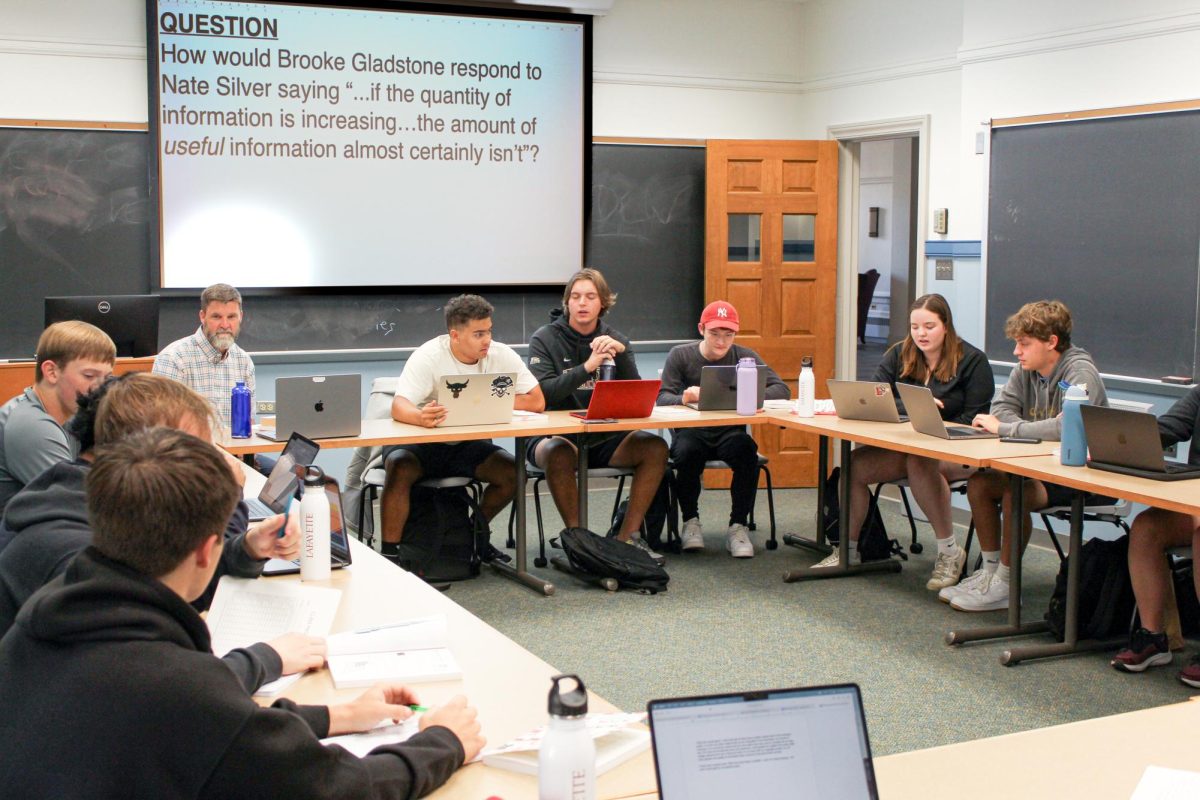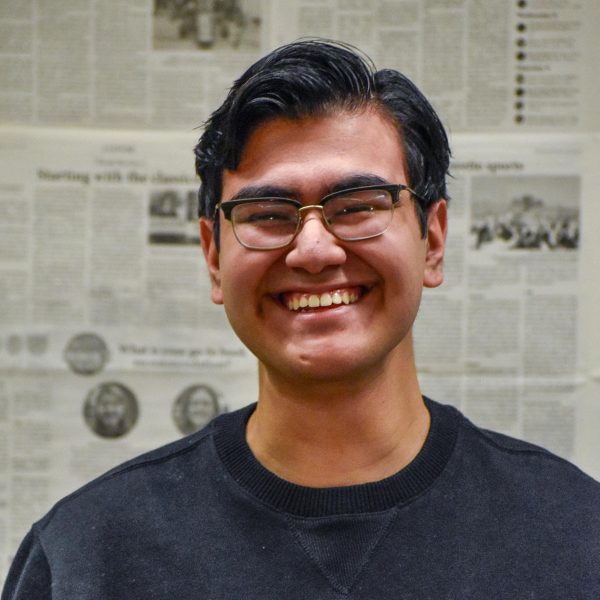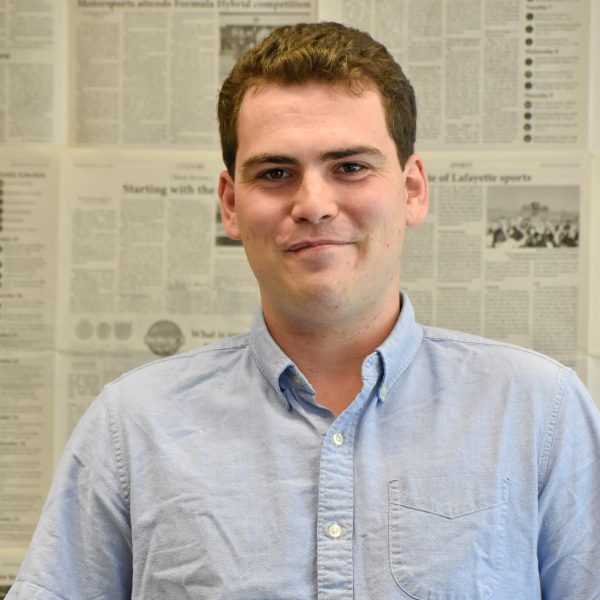While much of the country anticipates election day every four years, math professor Trent Gaugler can also look forward to something else: his Politics and Polling First Year Seminar.
The class, which is run every presidential election year, examines people’s political beliefs, their actions and the factors that may shape both. Gaugler said that the election year provides a unique opportunity for students to interact with what they learn in class first-hand, like watching the upcoming presidential debate together.
“Given this background of what they’ve talked about, in terms of how campaigns shape what they’re going to talk about and how they’re presenting information, how will they use that background discussion as a basis for interpreting what they’re seeing?” Gaugler said. “I’m fascinated to process that with them after the debate.”
Gaugler’s class has been particularly looking at the role of the media and its influence on the general population and its perception of politics.
“The focus is media and I think that’s a very integral part nowadays,” said Milan Iezzi ‘28, a student in the class. “Media has evolved so rapidly, just in the past 10 years, where we’ve strayed away from traditional media. Where it’s been newspapers, television, podcasts, talk shows, now it’s social media.”
“We all have personal biases and we already have a preconceived notion of what’s right versus what’s wrong,” said Benjamin Morris ‘28, another class member. “In this class and the social discussion, we’re opening up to hearing different perspectives about how the media affects different people and how the media plays a really significant role in our lives, whether we like it or not.”
In spite of the contentious nature of the topic matter, students in Gaugler’s class have mentioned they feel comfortable not only sharing but challenging their own viewpoints all over the spectrum.
“I think the structure of the classroom and the environment and the fact that the professor generally stays very neutral and is open to hearing ideas from everyone and wants everyone to contribute really contributes to making it a very civil environment,” said class member Tyler Troutman ‘28.
“Everybody has their own [opinions], but we’re called to question them and we’re called to further investigate our own and others’ and where they come from,” Iezzi said.
“There are a lot of questions that we’re called to ask that I think we wouldn’t if we weren’t in the class,” Iezzi continued. “I think that one very poignant question that I mentioned earlier, ‘How do we know what we know?’ is a gateway into this philosophical mind pit of politics.”
Students mentioned that they liked the class’ emphasis on conversation and differing perspectives.
“I think it values a lot of what the world is lacking,” Troutman said of the class. “Informed discussion about politics and polling and looking deeper into the actual history of the things that we perceive as the problems.”
“You learn how to do something by practicing doing the thing,” Gaugler said. “That’s what I want us to do. I want us to practice having difficult conversations about difficult concepts.”
























































































































